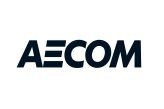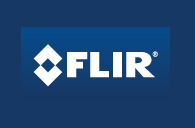Texting More Than 1 Million Patients: What the Data Shows
FRANKLIN, Tenn., Nov. 20, 2019 /PRNewswire-PRWeb/ -- Dialog Health is pleased to share the findings of a five-year analysis of text messages sent to more than 1 million U.S. patients by a single Dialog Health client: a national urgent care company operating and managing urgent care centers located across multiple states. Text messages were delivered via Dialog Health, a two-way texting platform that enables information to be pushed to and pulled from patients, caregivers and healthcare facility staff.
Automated, post-discharge text messages were sent to patients who visited urgent care centers during the five-year period. In total, more than 3 million text messages were sent to the million-plus patients.
Findings and Analysis
The following are Dialog Health's findings and analysis of the results:
-- About 92% of all automated text messages were delivered successfully.
This indicates a willingness by patients to share their mobile number
with healthcare organizations, with an understanding that they will
receive text messages. It also demonstrates the reliability of texting
as a patient communication method.
-- The company sent post visit text messages to patients to inquire if
anyone wanted a follow up phone call from staff. While no response was
required by the patients, slightly more than 350,000 patients did reply
with 83% of the replies stating no follow-up call was required.
Importantly for the company, 11% of replies from patients (~38,000) were
requests for a callback.
-- Approximately 19% of patients who opted in to receive text messages were
55 years of age and older. These patients were responsible for 28% of
reply texts mentioned above. This included hundreds of replies from
patients 90 years of age and older. As these figures demonstrate, age is
not a barrier to texting.
-- More than 91% of patients who opted in remained subscribed after
receiving the automated text messages. Most patients do not find text
messaging, when used judiciously, intrusive.
Commentary
Brandon Daniell, president and co-founder of Dialog Health, noted the following: "These findings further validate the tremendous value of two-way text messaging as a platform for communicating with patients of all ages. Text messaging is a proven method for engaging patients, enhancing outcomes, improving staff productivity and strengthening workflow, among other benefits. As text messaging has become the preferred communication method for a growing number of Americans, healthcare organizations should evaluate how to incorporate two-way text messaging as a communication platform or further expand its existing use."
Background
Only patients who chose (i.e., opted in) to receive text messages were sent post-discharge messages.
The initial text message asked patients whether they desired to speak over the phone with an urgent care team member concerning their visit. Patients who responded "Yes" received an automated reply text informing them that they would soon receive a phone call from an urgent care center team member. This text also provided the area code that would be associated with the call to help patients more effectively identify the call as legitimate.
Patients who responded "No" received an automated reply text that advised patients to call the urgent care center if they eventually required assistance and provided the phone number to call.
Interview Requests
Members of the media interested in speaking with Brandon Daniell concerning the findings and value of two-way texting for healthcare should email info@dialoghealth.com or call (877) 666-1132 if on a deadline.
About Dialog Health
Dialog Health Inc. is a U.S.-based company that provides a two-way texting platform to organizations which they can leverage as a communication and engagement channel. Two-way texting is a convenient, fast, effective and affordable communication resource for stakeholder engagement. For more information, visit http://www.dialoghealth.com, call (877) 666-1132 and follow Dialog Health on LinkedIn.
SOURCE Dialog Health




